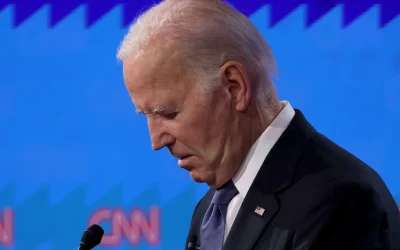Atlanta, Georgia, USA–August 19, 1993
Almost two years ago, the National Center for Health Statistics released a report which underscores our national crisis in teenage pregnancies. Statistics confirmed that the ranks of teenage mothers of ages 15 through 17 is increasing at an annual rate of 8 percent. Louis Sullivan, then Secretary of Health and Human Services, observed that the trend “portends a future generation of fragile families in the US.”
As many have pointed out, the roots of this national disgrace lie in our society’s tendency to treat the subject of sex exclusively as an “adult issue”. Sexuality for most Americans is a baffling and awkward topic. When sex education is discussed by our nation’s school boards, parents, and educators, the issue of morality inevitably is raised. Even in this dangerous age of AIDS and rampant sexually transmitted diseases, there are still many citizens who refuse to allow teenage pregnancy prevention programs of any scope.
But the root of this national disgrace is also in the climate of hopelessness and low-self esteem that has been allowed to undermine today’s youth. A teenager who has grown up without emotional nourishment will naturally hunger for it through physical intimacy and sexual relations.
The Centers for Disease Control and Prevention did a survey last year of more than 2,000 Georgia high school students, and found–surprise!–they are having sex more often and at an earlier age than ever before. Various parent, teacher, and community groups have alternately focused on abstinence, birth-control devices, or standard sex education classes as the solution to teenage pregnancy.
In Gwinnett County, sex education and disease prevention is taught in sixth through eighth grade, ironically stopping just as teens are most sexually active. When it was suggested that these courses be simplified and modified for fourth and fifth grade students in November of last year, a swell of church-based opposition quickly rallied and loudly complained to county officials.
The sex education per se is not the issue. More important and less controversial is the pressing need to instill in our children of all ages the feeling that they matter and that they are loved within the circles of family, community, and society. Instead of education for children, we should be educating our politicians, leaders, and parents, to create a society where children are given the first priority, since they are the most vulnerable.
If we are to ever get ahead of this malaise, each segment of our nation’s political and economic spectrum must be reassessed with a focus on children. Businesses should consider solutions that allow employees’ children to spend more time with their parents (on premises day-care, for example). President Clinton’s recently passed Federal Family and Medical Leave Act is an excellent example of political leadership with vision. This act provides up to 12 weeks of leave with no penalty so an employee can provide intensive care for a child.
As for curriculum in our schools, programs should be created which teach elementary school children how to act responsibly and how to motivate themselves; for the older school children there should be programs that stress basic living skills, and provide teens with jobs and academic training. To help those teens who fall between the cracks, there should be health clinics in every high school and middle school that can provide a secure emotional refuge and non-judgmental source of scientific information. Currently only 14 of all Georgian counties have such clinics.
This nation needs to seriously address the alarming spiritual and emotional vacuum which is attacking our children more gravely than any terrible disease. The anticipated selection of Dr. Joycelyn Elders as US surgeon general will have long-term benefits to this end. Her passion on the issue of teenage pregnancy can be seen from her statement in 1987 that a poor girl who bears an illegitimate baby “is captive to a slavery the 13th Amendment did not anticipate.”
Teenage pregnancy makes slaves out of unwitting young mothers and brings shame to this otherwise proud nation. Shifting the focus from controversial “lifestyles” discussions to meaningful reassessment of our children’s mental health means focusing on the causes rather than symptoms.














0 Comments